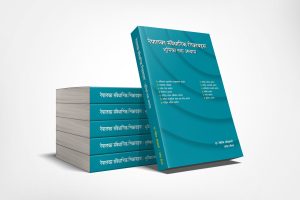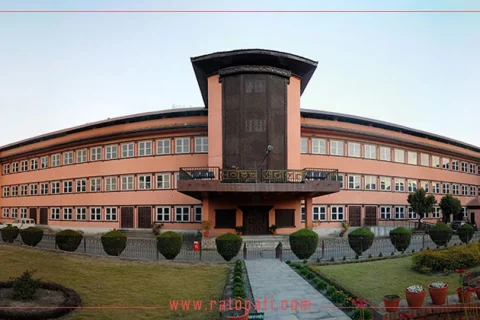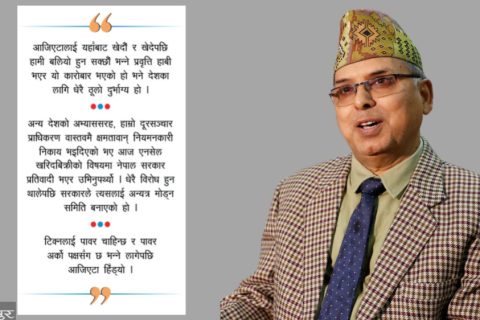With the appointment of Nepali Congress President Sher Bahadur Deuba as the country’s new prime minister, the question now is how long he will remain in the post.
The House of Representatives has completed more than three and a half years of its five-year tenure. It still has a year and a half to go.
In its order to appoint Deuba as prime minister, the Supreme Court said on Monday that he should “complete the process of getting the vote of confidence as per Article 76 (6) of the constitution”.
According to Article 76 (6), he will have to go for a floor test in Parliament within 30 days of appointment.
“The result of the vote of trust will decide the fate of the Deuba government,” Bipin Adhikari, former dean at Kathmandu University School of Law, told the Post.
Despite his Nepali Congress having only 61 seats in the 275-member House of Representatives, Deuba had staked claim to form the government as per Article 76 (5) of the constitution with the support of lawmakers from four other parties—Communist Party of Nepal (Maoist Centre), Madhav Kumar Nepal faction of CPN-UML, the Upendra Yadav faction of Janata Samajbadi Party and Rastriya Janamorcha.
Altogether 149 members of the House of Representatives supported him—including 26 from the Nepal faction of the UML.
Deuba will continue as prime minister until the periodic general elections to be held after a year and a half if the 26 UML dissidents continue to support him. If not, fresh elections have to be called within six months, as per Article 76(7) of the constitution.
Leaders of the UML say it is unlikely that they will support Deuba.
“The UML will be a united party by then [by the time of the vote of trust]. It will make a decision where to stand and we will follow that,” Gokarna Bista, a UML secretary close to Nepal, told the Post.
A 10-member task force of the party, with five from the Nepal faction and five from the faction led by outgoing prime minister and UML party chair KP Sharma Oli, had on Sunday come up with a 10-point recommendation. Bista was one of the members of the task force.
One of the points of the recommendation says, “On the House dissolution case that is being examined by the Supreme Court, we will move ahead by following institutional decisions and the spirit of party unity.”
During a meeting with other leaders of the parties that supported Deuba following the Supreme Court verdict on Monday evening, Nepal said he might not remain in the alliance now on.
That will leave Deuba with the support of just 123 lawmakers—61 from the Nepali Congress, 49 from the Maoist Centre, 12 from the Upendra Yadav faction of Janata Samajbadi Party and one from Rastriya Janamorcha. The prime minister needs 136 votes as there are at present only 271 members in the House.
Deuba, however, would have enough votes if the other 20 lawmakers that belong to the Janata Samajbadi Party sided with him.
According to Surendra Labh, a political economist, the Yadav faction may get a few more lawmakers on its side but not enough to give Deuba a majority.
“Even then, there could be a deficit of around 10 seats for the vote of trust,” he told the Post.
He does not see the possibility of Mahantha Thakur siding with Deuba.
“Thakur isn’t the person who changes sides overnight,” he said. “If the UML remains intact, as it seems it will, the country will head for snap polls.”
The Thakur faction had sided with Oli after the House dissolved on December 20 was reinstated by the Supreme Court on February 23 after then prime minister Oli pledged to address the grievances of Janata Samajbadi Party.
Eleven leaders of the Thakur faction were even inducted to the Cabinet after the May 21 dissolution of the House, but they lost their jobs when the Supreme Court on June 22 ruled that a caretaker prime minister could not expand the Cabinet.
However, leaders of the Thakur faction have not closed the doors yet.
“Whether they will support Deuba in the vote of confidence depends on how he approaches them,” said Laxman Lal Karna, leader of the Thakur faction of Janata Samajbadi Party.
Another legal issue is that the two factions of Janata Samajbadi Party have already informed the Election Commission that they are parting ways. The Election Commission is set to decide on which of the two factions is legitimate and will get the party’s name and the umbrella election symbol.
In Deuba’s probable favour, there is a legal loophole for the Nepal faction of the UML to support Deuba and yet not be expelled from the party.
In its verdict on Monday, the Supreme Court said that party whip is not applicable in the case of supporting a prime minister to be appointed on the basis of Article 76 (5).
“As action cannot be taken for abandoning the party as per Political Party Act-2017 for expressing confidence or support in the appointment of a prime minister as per Article 76 (5) of Constitution of Nepal, a prohibitory order has been issued in the name of the defendants not to take action against any member of the House of Representatives for expressing confidence, support, opinion or voting with regard to the appointment of the prime minister as per that provision,” said the order.
According to senior advocate Govinda Bandi, the verdict means that the party cannot take action against its lawmakers for supporting Deuba in the vote of confidence as well.
“It would be illogical to say the lawmakers who could extend support for the appointment of the prime minister are not allowed to support during the confidence vote,” he told the Post.
He was referring to other lawyers who argued that the provision is only for extending support when Deuba made his claim for the post of prime minister.
“The verdict is just for the government formation as per Article 76 (5). The lawmakers are subject to the whip of their parties when voting is done on the confidence motion,” advocate Om Prakash Aryal, who specialises on constitutional law, told the Post.
Adhikari, the former dean at Kathmandu University School of Law, agreed with Aryal.
He said that the verdict categorically says the whip as per the Political Party Act does not apply at the time of prime minister’s appointment under Article 76(5).
“Taking a vote of trust is not part of the appointment,” Adhikari told the Post. “Also, the provision of the trust vote is in Article 76(6), which is not mentioned in the verdict.”
Whatever the legal interpretation of the Supreme Court verdict, Nepali Congress leaders are confident that the Nepal faction will continue to support them.
Bal Krishna Khand, chief whip of the Nepali Congress who was appointed home minister on Tuesday evening, said it is only logical for them to expect that the parties who supported them in the government formation will support the vote of trust motion too.
“We will approach all the parties for support. As the Supreme Court in its Monday verdict said no whip is applied against supporting government formation as per Article 76 (5), I think there will be no problem for lawmakers from the UML’s Nepal faction to support us,” he told the Post. “We believe we will survive till the regular elections.”








